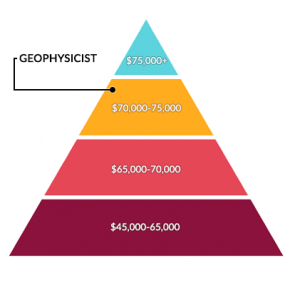All Categories
Featured
Table of Contents
Uses For Geophysical Data in South Lake Oz 2021
This work is progressively contracted out, so consultancies offer another source of work. Consultancy companies differ in size, from really little companies to big multinationals. Some consultancies are quite specialised in utilizing specific geophysical techniques or working in particular places, while others use a more varied series of services to their customers.
The extraction of gas from landfill websites is another area of work and this may grow in the future. Expedition business may undertake work for construction companies, public utility, mining business and ecological companies, so geophysicists might be employed in any of these settings. Other employers consist of: geological surveysgovernment bodies and agenciesuniversities and research study institutes.


Vacancies might be listed in the oil and gas sector press. Recruitment is affected by oil price fluctuations and the level of competition for positions varies depending on this. Professions Days, which cover the full variety of geoscience professions and are typically attended by a variety of key market companies, are run by The Geological Society.
Geophysicist, Exploration - Job Descriptions in Swan View Oz 2022
Some of the large oil and gas business offer a full two-year structured training programme across the breadth of geophysics, consisting of the chance to experience work in numerous groups prior to specialising in one area. Your training may include deal with: existing wellsmagnetic and gravitational prospective field data analysisresearchrock analysis. It's more usual for your initial training to be offered on the task.

There might be a probationary period throughout which you work together with a skilled coworker. Competency-based appraisals occur regularly in most companies. In smaller companies, and for scholastic posts, there is not likely to be any official training - you'll be anticipated to start work straightaway and get skills as you go along.
If you work for a smaller sized company, you might find that you require to take duty for setting up and funding your own development and training. If you have a geology degree, membership of The Geological Society can be useful for networking and for keeping up to date with the market.
Geophysical Survey - An Overview in Mirrabooka Western Australia 2020
You may also discover it beneficial to sign up with the PESGB (The Petroleum Exploration Society of Great Britain, which has a geophysics unique interest group. After a probationary duration, and once you've gotten some experience, you could advance to senior geophysicist, then group leader and then into a senior function in management.
The ease of motion between functions depends on the business structure. Research study at Masters or Ph, D level in a subject associated to geophysics or geosciences might aid with your profession development and progression. The work market within the oil and gas market is very dependent on rate and this might affect your opportunities for profession development.
However, not all tasks are dependent on the oil and gas industries. For experienced geophysicists, freelance consultancy uses an excellent path for profession advancement. You can likewise specialise in a particular area of geophysics. As a geophysicist, you're likely to have numerous tasks throughout your working life. International movement is essential for dealing with peaks and troughs in different countries at different times.
Glad You Asked: What Are Seismic Surveys? in Beechboro Oz 2020
From geophysics, it's possible to concentrate on seismology (completing more training to become a seismic interpreter) or to move into associated areas such as engineering geology or threat prediction.
Deciding what to study in college is a difficult option. Even if you understand that your field of interest lies in science, what program of study is best for you?
The first step to achieving your goal of ending up being a geophysicist is making a degree. Even for entry-level positions in the field of geoscience, you'll require a bachelor's degree (a geophysicist college degree) from a recognized college or university. Geophysicists should be able to: analyze rocks, photographs, and other pieces of data conduct research study both in the field and in labs produce maps and charts of their findings write reports To achieve all this, trainees need a specialized education for geophysicist careers.
As stated above, you'll need a bachelor's degree in geoscience or a related discipline, such as a physical science or a life sciences, to land an entry-level task. However students can also prepare by majoring in subjects like: Biology Chemistry Computer technology Engineering Mathematics Physics The above geophysicist majors provide a more generalized approach to a single scientific discipline, however a lot of programs need students to take several geology course.
Table of Contents
Latest Posts
Geophysics, Engineering Geophysics And Applied ... in Carmel Western Australia 2023
Airborne Geophysical Surveys Of The Lower Mississippi ... in Balcatta Oz 2022
Working As A Geophysicist And Oceanographer In Canada in Cannington Australia 2023
More
Latest Posts
Geophysics, Engineering Geophysics And Applied ... in Carmel Western Australia 2023
Airborne Geophysical Surveys Of The Lower Mississippi ... in Balcatta Oz 2022
Working As A Geophysicist And Oceanographer In Canada in Cannington Australia 2023